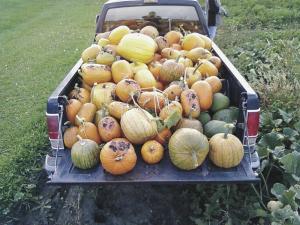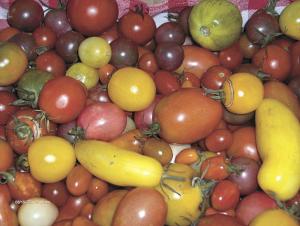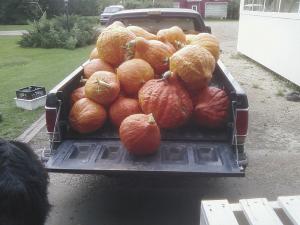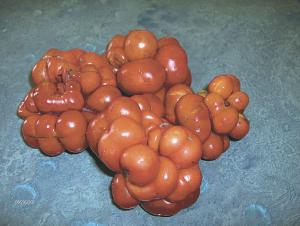2011 - Volume #35, Issue #1, Page #08
[ Sample Stories From This Issue | List of All Stories In This Issue | Print this story
| Read this issue]
Rare Seed Business Thrives On Canadian Farm
 |
 |
 |
 |
Growing and selling heirloom seeds combines her two passions horticulture and history. Her success a seed catalog with more than 600 heirloom varieties ù is due to efficient organization skills and working full-time year-round.
"The preparation is the hardest part to get it on paper before you plant," says the Carman, Man., entrepreneur.
Her garden stretches over 17 long acres half a mile from one end to the other. Plus, her mother and other gardeners grow varieties for her. Plenty of space is a necessity, as heirloom varieties are open-pollinated, and varieties in each species need varying distances to ensure they don't cross-pollinate.
"Beans are one of the easiest," Stefanec explains. "They only need to be separated by 20 to 30 ft. Tomatoes need 100 to 150 ft. Squash varieties must be half a mile apart."
The purity of the strains is worth preserving as the seeds go back hundreds and even thousands of years. Stefanec records the history along with plant descriptions in her on-line and print catalogs.
For example: Crapaudine The oldest beet in cultivation, dating back to the time of Charlemagne (about 1,000 years ago). Or, Sweet Pea ù In 1699, the Cupani Sweet Pea was originally found growing wild in Sicily and then sent by a Sicilian monk called Father Franciscus Cupani to a teacher in Middlesex, England named Robert Uvedale. This is the original variety that all sweet peas originated from.
Gardeners appreciate heirloom seeds because they produce vegetables and flowers with the same characteristics year after year unlike hybrids. Stefanec also finds them to be disease-resistant and hardier in a variety of conditions. She sells seeds for all different zones, and notes that if they produce in Manitoba's short season, they can make it practically anywhere.
"The taste is just phenomenal," says Stefanec, noting it's one of the main reasons for raising heirlooms. "There's so much variety white cucumbers, purple potted peas, striped beans, tomatoes in all colors."
Winningstadt cabbage has a pointed head. Jaune de doubs is an old yellow carrot variety. One of her favorites is the super productive dragon tongue bean, yellow pods with purple stripes.
Stefanec's work is much like any other gardener, planting in the spring, and weeding and harvesting, with the exception that she has to keep track of each variety. As vegetables, flowers and herbs are harvested, her family eats the produce, her rare breeds poultry and hogs eat the scraps, and the seeds are saved and dried in the second and third stories of the Stefanecs' big, red barn. She uses an air compressor to blow off chaff from some seeds, soaks and separates pulp from seeds in varieties such as squash, and goes through a fermenting process to save other seeds, such as tomato seeds.
She packages and markets her seeds through the winter, with orders starting to ship in December.
Stefanec acquires her seed through seed exchanges and a network of heirloom gardeners. Some were commercially available more than 100 years ago. Others have been handed down from home gardeners and Native Americans.
One variety she is proud of finding through a European source is Early Scarlet Horn carrots, a variety from the 1600's grown in the early U.S. settlements. The seed is very rare, and this is the first season she has enough seed to sell.
Raising and selling heirloom seeds is very rewarding, Stefanec says. But it's a year-round job and has the same challenges as gardening. Wet weather is her biggest problem, because seeds will mold if it's damp. They must be brought inside the house or other heated building.
For gardeners interested in trying heirloom varieties, she suggests ordering seed early as some seeds are in limited quantities. Catalogs sent to the U.S. cost $2.
Contact: FARM SHOW Followup, Tanya Stefanec, Heritage Harvest Seed, PO Box 40, RR 3, Carman, Man., Canada R0G0J0 (ph 204 745-6489; www.heritageharvestseed.com).

Click here to download page story appeared in.

Click here to read entire issue
To read the rest of this story, download this issue below or click here to register with your account number.




